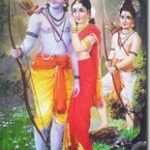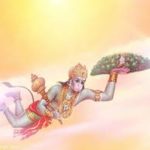Fictional Airplanes and Spiritual Contributions
In the epic, the Ramayana, Ravana is shown as using an airplane to take Sita to Lanka and, similarly, Hanuman is portrayed as flying through space to land near the Ashoka Vana. Illustrations such as these inspire ardent believers to mistakenly claim that, thousands of years ago, Indians had designed and used an aircraft and they were also pioneers in space travel.
While they have the right to believe literally in mythological symbols, they should be cautious when claiming credit for innovations and discoveries that are not supported by objective evidence. In today’s world of scientific skepticism, unsupported claims would be ridiculed as meaningless and, in the long run, mythological stories would themselves be denigrated as fiction and falsehood.
Hindu mythologies were not written to chronicle pseudo-historical events or to entertain us through fiction. Instead, they were written to share mystical experiences – insights and realizations – that arose in the minds of our sages and seers. As Carl Jung described, “myths bubble up from deep in the wells of the collective unconscious”. They are about truths that guide us from the mundane world of experiences to the transcendent world of spiritualism.
Since these truths and experiences are ineffable, our sages, to make it understandable to ordinary mortals like us embedded them within fictional stories and illustrations. Therefore, mythology should neither be interpreted literally nor used to rationalize ‘unfounded’ inventions.
Although the Hindu mythologies appear to be about the lives of kings and queens, demons and devas and their troubles and turmoils, in reality, they are about us – ordinary people. At the fundamental level, mythologies describe to us a social structure that is essential for the orderly conduct of the world. At the metaphysical level, they advise us to look beyond our mundane lives by highlighting our inner problems and our inner confusion. Through subliminal messages, they urge us to steer away from our undue focus on our egos and, instead, to identify ourselves with our inner consciousness. At the spiritual level, Hindu mythologies emphasize that God is within us and that we must find a way to open our inner consciousness to discover this God. In summary, as perennial philosophies, they provide us with a cohesive understanding of the connection between the universe, the society, and the individual. We cannot afford to undermine these rich contributions by distracting ourselves with ephemeral innovations from the material world.
Dr. Ram S. Sriram
vidyarthifoundation@gmail.com




Leave a Reply
You must be logged in to post a comment.